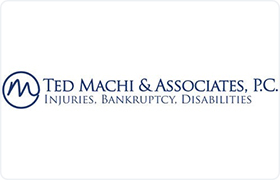Haslet Bankruptcy & Debt Lawyer, Texas
Sponsored Law Firm
-
 x
x

Click For More Info:
-
Machi & Associates, P.C.
1521 North Cooper Street Suite 550 Arlington, TX 76011» view mapAccident & Injury, Bankruptcy, Social Secuirty We Fight So You Don't Have To
Our professional team of attorneys and staff provide the experience and expertise needed to effectively handle your case.
800-804-0771
David Jesse Coker
Litigation, Science, Technology & Internet, Business & Trade, Credit & Debt
Status: In Good Standing
Sharon Kay Jones Sherman
Real Estate, Bankruptcy, Bankruptcy & Debt, Wills
Status: In Good Standing Licensed: 23 Years
Lloyd Terry George
Real Estate, Credit & Debt, Litigation, Civil Rights
Status: In Good Standing Licensed: 57 Years
James Calvin Fling
Family Law, International Other, Litigation, Consumer Bankruptcy
Status: In Good Standing Licensed: 53 Years
Robert Bradley Prince
Personal Injury, Bankruptcy, Family Law, Criminal
Status: Inactive Licensed: 17 Years
Darla Julene Snead
International Other, Public Schools, Business & Trade, Consumer Bankruptcy
Status: In Good Standing Licensed: 24 Years
 Ted Machi Arlington, TX
Ted Machi Arlington, TX Practice AreasExpertise
Practice AreasExpertise
